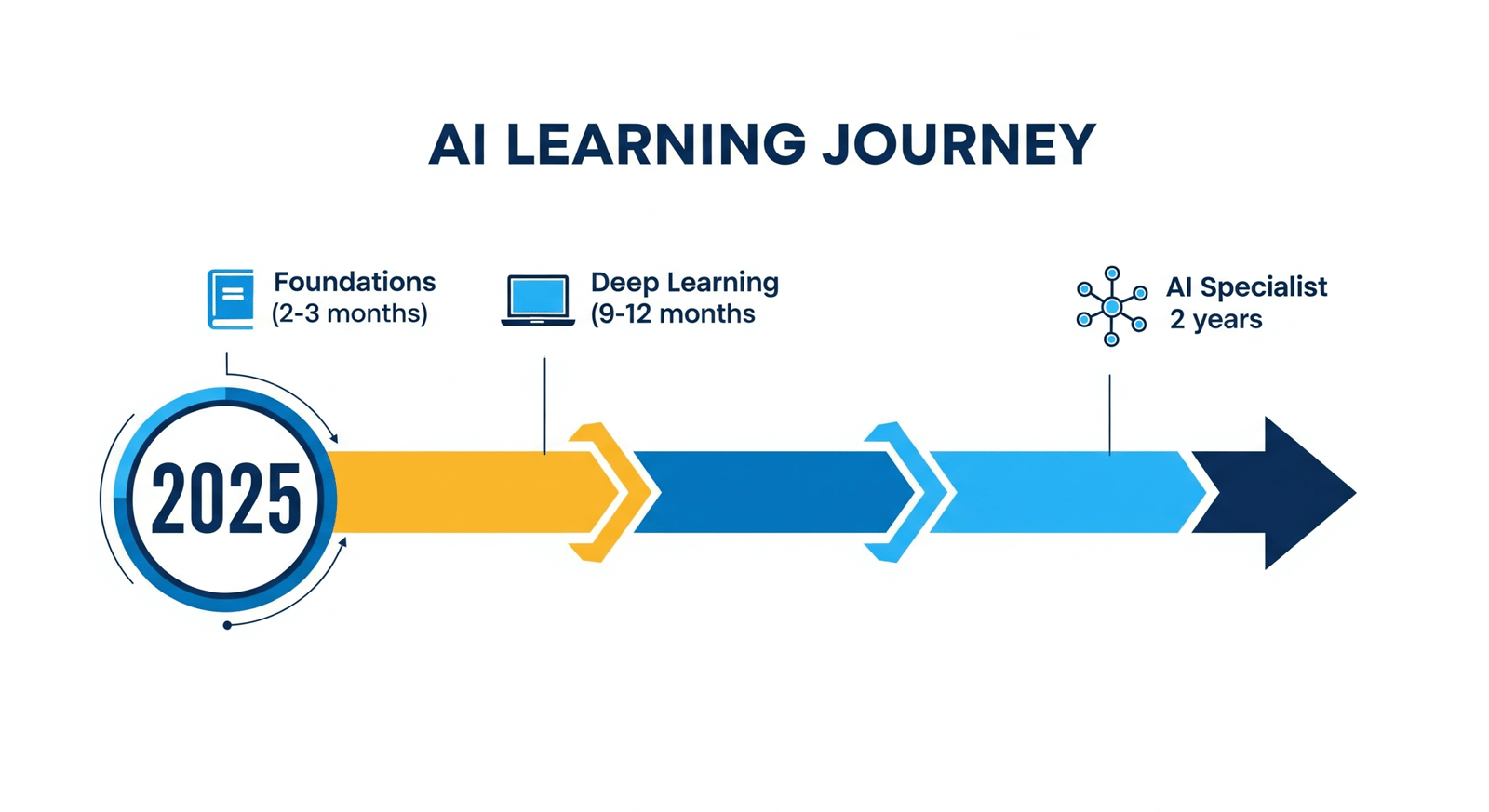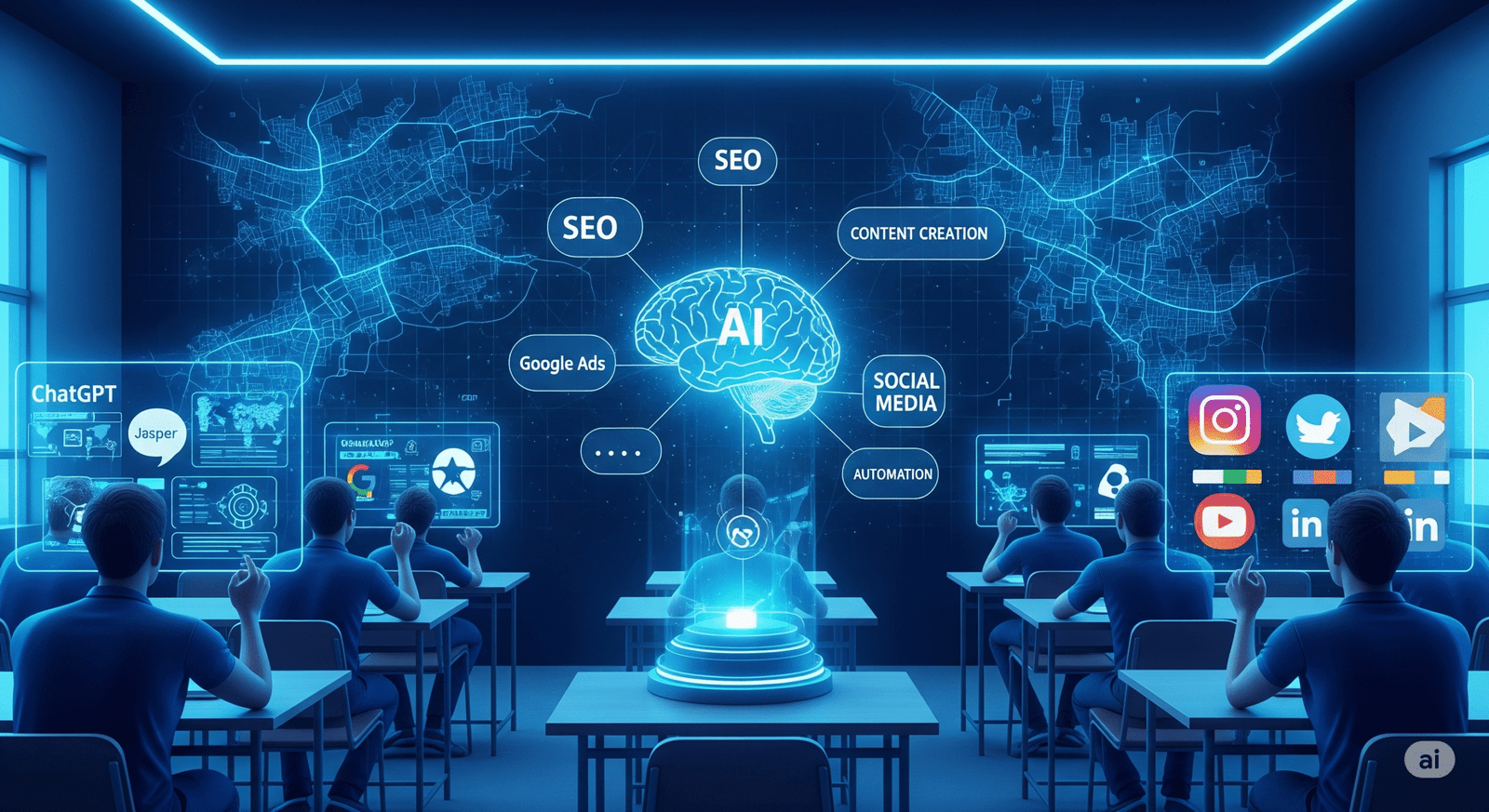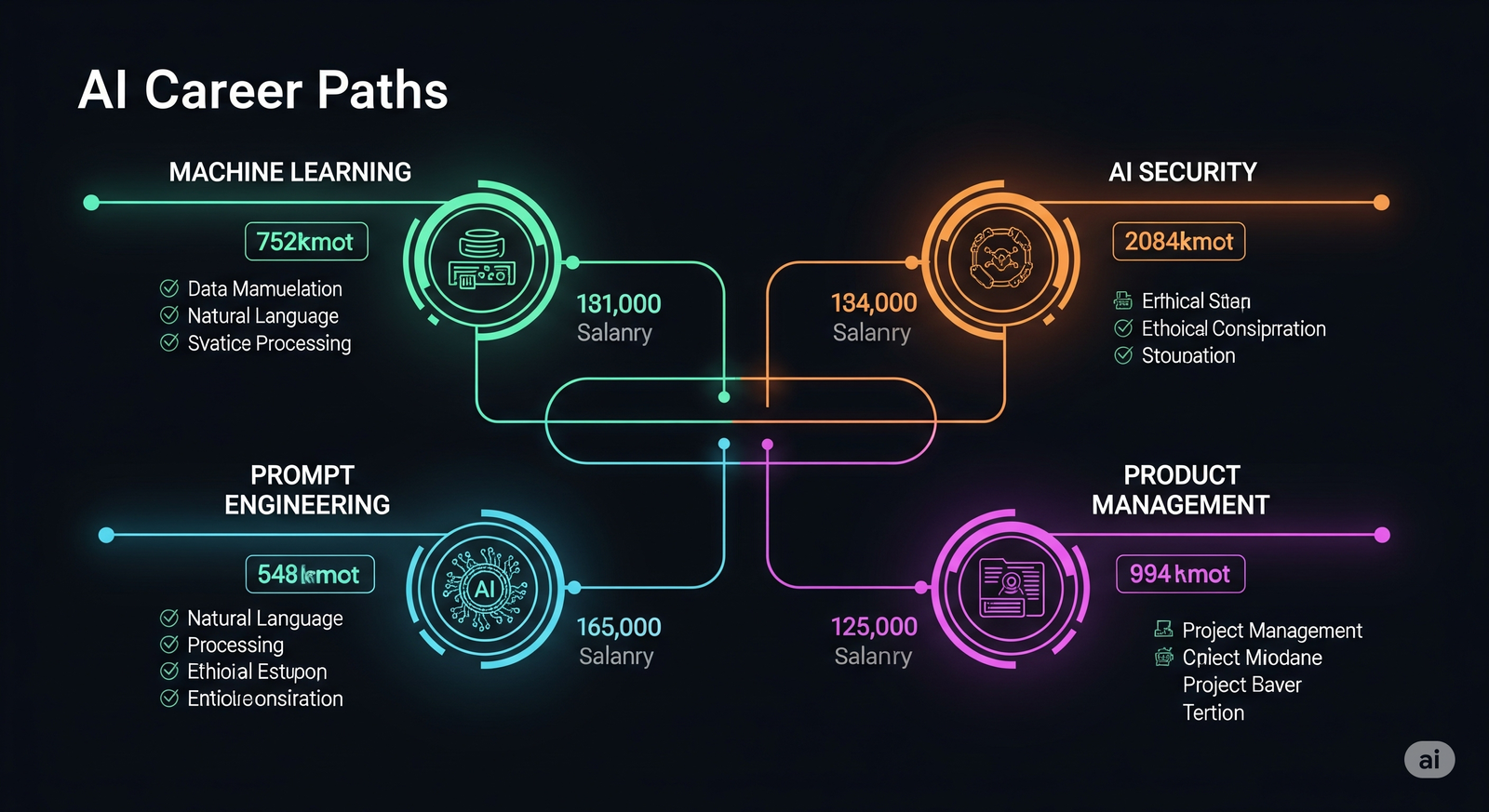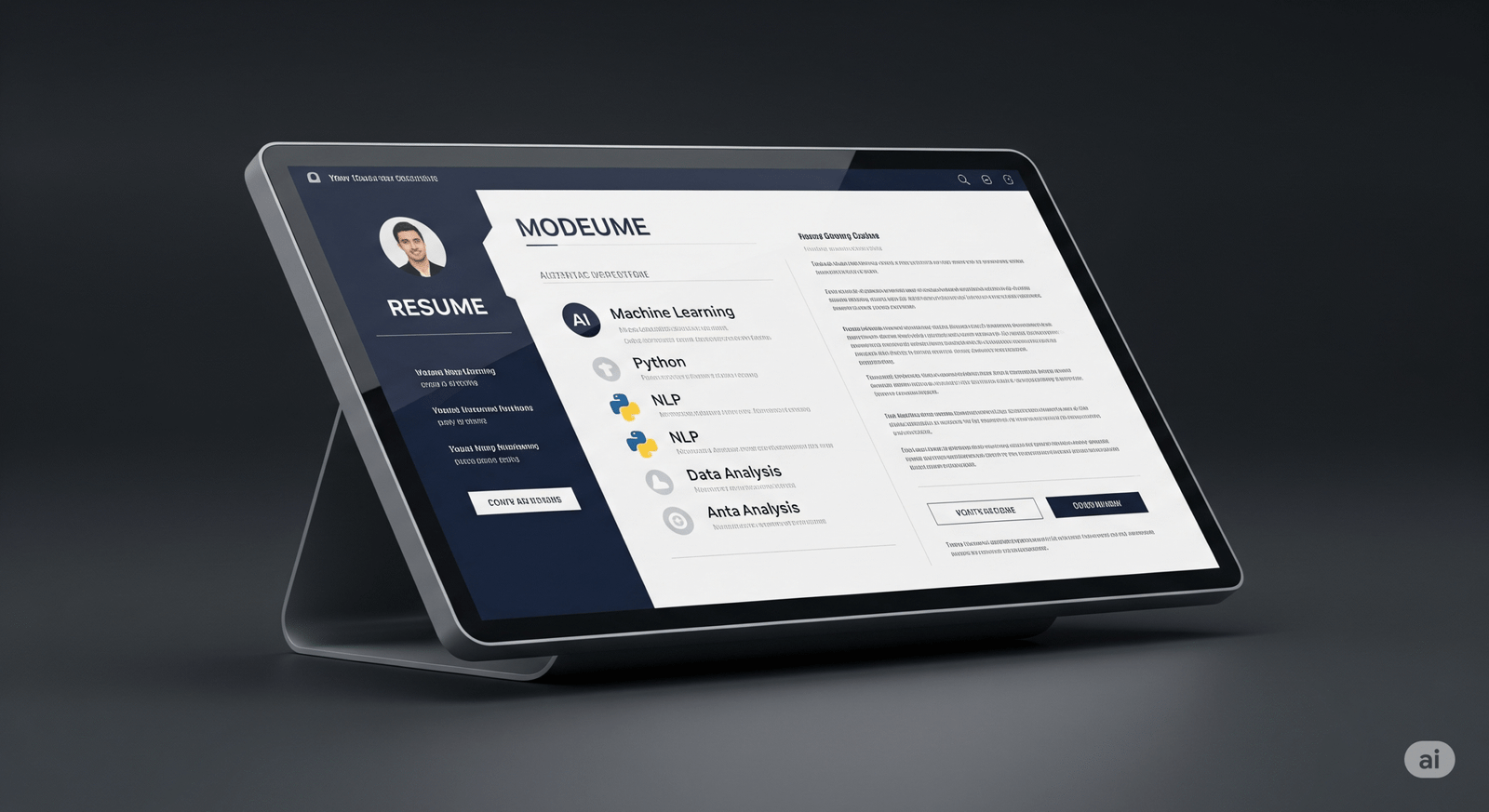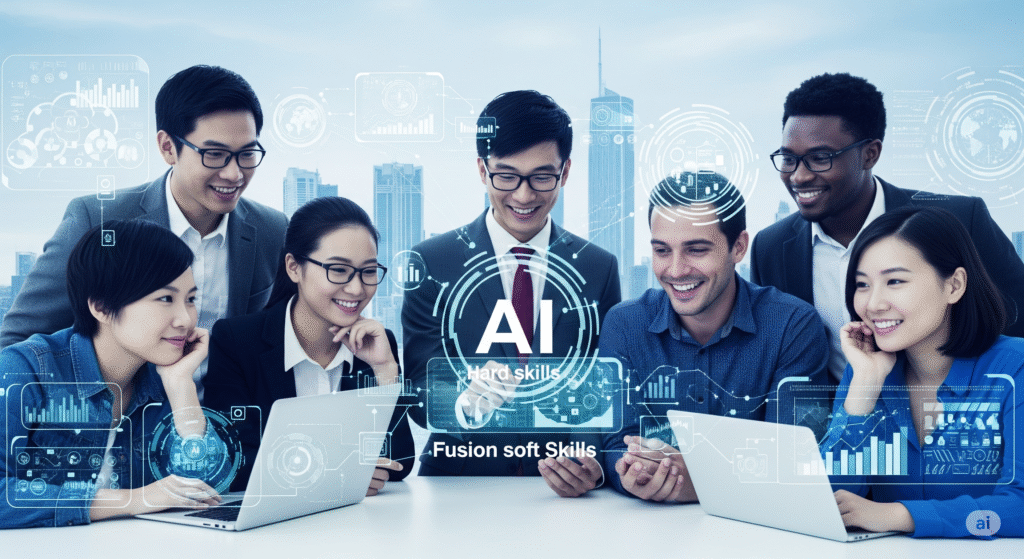
Introduction: Why AI Skills Matter Today
Artificial Intelligence (AI) is no longer a future concept—it’s a present-day reality shaping industries across the globe. Whether you’re in tech, marketing, finance, healthcare, or manufacturing, AI is influencing how work is done.
To stay relevant and competitive, professionals must learn both AI hard skills (technical abilities) and AI soft skills (human-centered capabilities).This combination ensures that you’re not just building or using AI—but thriving alongside it.
What Are AI Hard and Soft Skills?
| Skill Type | Description | Examples |
|---|---|---|
| Hard Skills | Teachable, technical, and measurable abilities | Python, Machine Learning, Data Science |
| Soft Skills | Interpersonal and cognitive abilities, often people-centric | Creativity, Adaptability, Communication |
AI Hard Skills: Building the Backbone of the Future
AI hard skills are essential for building, deploying, and managing AI systems. Here’s a breakdown of the top hard skills required in the AI domain:
🔹 1. Programming Languages
- Python is the most popular for AI and machine learning.
- R, Java, and Julia are also in demand.
🔹 2. Machine Learning & Deep Learning
- Understanding algorithms, neural networks, and reinforcement learning.
🔹 3. Data Science & Data Analysis
- Working with large datasets to draw meaningful insights.
🔹 4. Cloud Computing
- Platforms like AWS, Google Cloud, and Azure host scalable AI models.
🔹 5. AI Tools & Frameworks
- TensorFlow, PyTorch, Scikit-learn, Keras, OpenAI APIs.
💡 Tip: Start small with Python and work your way up to tools like TensorFlow.
AI Soft Skills: The Human Edge
As machines become smarter, the human factor becomes even more important. Employers seek professionals who can adapt, think critically, and collaborate effectively.
🔸 1. Adaptability
- Technology evolves fast; you need to keep learning.
🔸 2. Emotional Intelligence
- AI can’t replace empathy, leadership, or human connection.
🔸 3. Communication Skills
- Translate complex AI topics for non-technical stakeholders.
🔸 4. Problem Solving
- Solve real-world challenges with creative AI applications.
🔸 5. Ethical Reasoning
- Understand and navigate the ethical implications of AI.
🧠 Quote: “AI may take over tasks, but it’s your mindset that will keep you ahead.”
Current Global AI Usage Statistics (2025)
Here’s a snapshot of how AI is being adopted globally:
| Region | AI Adoption Rate (%) | Industries Leading the Way |
|---|---|---|
| North America | 78% | Healthcare, Finance, Retail |
| Europe | 65% | Manufacturing, Tech, Logistics |
| Asia-Pacific | 83% | E-commerce, Education, Smart Cities |
| India | 72% | IT, Education, Agriculture |
🌐 Source: McKinsey Global AI Report 2025
Top Industries Demanding AI Skills
| Industry | Role Example | Required Hard & Soft Skills |
|---|---|---|
| Healthcare | AI Health Analyst | Data Science, Ethics, Communication |
| Finance | Quantitative Analyst, Risk Manager | Machine Learning, Cloud Tools, Decision-Making |
| Marketing | AI Content Strategist | NLP, Creativity, Emotional Intelligence |
| Manufacturing | Robotics Engineer | Deep Learning, Engineering, Collaboration |
| Education | EdTech Specialist | AI in Learning Platforms, Empathy, Adaptability |
Key Benefits of Combining Both Skillsets
✅ Stay competitive in the job market
✅ Work effectively with AI tools and teams
✅ Understand both the “how” and the “why” behind AI processes
✅ Make informed ethical decisions
✅ Bridge the gap between technical and business goals
How to Learn AI Hard and Soft Skills
📘 Online Learning Platforms
- Coursera – Machine Learning by Andrew Ng
- edX – AI-focused MicroMasters from MIT
- LinkedIn Learning – Courses on emotional intelligence and communication
🛠️ Hands-On Practice
- Kaggle for data science competitions
- GitHub for sharing AI projects
- Build simple AI tools using Python and Jupyter Notebooks
🧠 Skill Building for Soft Skills
- Join public speaking clubs (e.g., Toastmasters)
- Practice empathy and active listening in team settings
- Attend webinars on leadership and adaptability
Career Paths That Require AI Hard and Soft Skills
| Career Role | Technical Skill | Soft Skill |
|---|---|---|
| AI Product Manager | AI Workflow | Leadership, Vision |
| Data Analyst | SQL, Python | Critical Thinking |
| AI Trainer | NLP Tools | Communication, Patience |
| UX Designer (AI) | Data Mapping | Creativity, Empathy |
| Business Intelligence | BI Tools | Strategy, Collaboration |
Future Outlook: AI + Human Skills = Unstoppable
AI is not here to replace you; it’s here to amplify what you do best. The best career investment today is not just learning to code an algorithm but also mastering how to work with AI ethically, creatively, and effectively.
The future belongs to professionals who balance logic and empathy, automation and adaptability, and technology and humanity.
Conclusion
As the AI landscape continues to evolve, so must you. Building a strong foundation in AI hard skills equips you with the tools to create. Developing AI soft skills gives you the mindset to lead and inspire.
Start today—become future-ready by mastering both.
Visit our Website – JAININFOSOFT.COM

